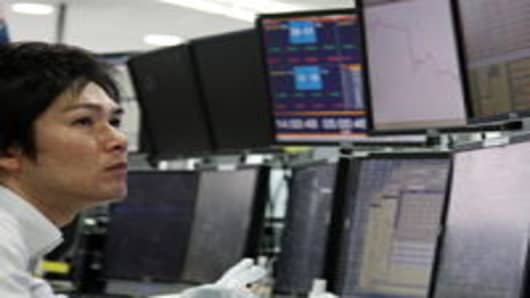It is like the aftermath of the financial crisis all over again. New listings in Asia have not seen such poor activity since the worst depths of stock markets in the first quarter of 2009.
Even so, with a heavy pipeline of initial public offerings waiting to hit the markets, especially in Hong Kong, investment bankers are mostly bullish on the outlook for deals over the rest of the year. But with many investors having been burned by some of the deals that came towards the end of the region’s great run, the big question is how many are prepared to keep putting their hands in their pockets.
The market enters the second quarter with stock prices up significantly across the region and companies and their bankers looking to revive more than $15 billion of deals that have been waiting to get out of the gates since the end of last year.
However, this year’s rally has been achieved on very limited trading volumes and so far little of the western money that fled home in the second half of last year has returned, according to investors, highlighting the caution that remains.
David Gaud, senior portfolio manager at Edmond de Rothschild Asset Management in Hong Kong, thinks it will be the second half of the year before Hong Kong and China see sizeable initial public offerings.
“A real recovery in these markets is about liquidity, which is not really there yet,” he says. “The markets remain quite binary between a hard China landing or a soft landing and they are over-reacting easily due to the lack of real liquidity. People are still deciding whether they want to be in China this year or not and that is not good for the market.”
In many ways the story for Asia so far this year is the story of global markets. A number of smaller listings inside China and the $600 million sale of Tesco’s property arm in Thailand helped the region retain a slender lead in the global league table.
But for Hong Kong, which had held the crown of best market in which to get deals done for the past three years, the first three months has seen the leading financial center in Greater China slip into third-equal by value and fourth by numbers of deals, according to Thomson Reuters data.
Philippe Espinasse, author of IPO: A Global Guide, says that Hong Kong’s lackluster IPO market this year is “a reflection of the fact that demand, and particularly retail investor demand, still isn’t really there for most transactions”.
He says investors are cautious after many of the IPOs they invested in over the past two years performed poorly. “It would take a few deals where investors make some money for IPOs to restart in earnest,” he says.
One Singapore-based fund manager at a large global institution says there are better opportunities among already listed companies. “I thought if I can get through 2012 without buying a single IPO, then that would be good,” the manager says.
Others are more positive, but stress that deals still have to be very attractive. Gigi Chan, who runs the China Opportunities Fund at Threadneedle, says she always has appetite for deals if they offer sustainable growth at a reasonable price.
But she adds: “Sometimes we prefer to do all the work at the IPO, but then wait to pick up stock in the market later on when prices are lower.”
Not all listings in Asia are faring the same, however. South-East Asia and India seem to be doing much better, according to Mr Gaud. The deals are not big but there is a steady flow in the Philippines and Indonesia and the demand is strong.
Indeed, while much of the global focus has been on China in recent years, some of the bigger listings this year could come in countries such as Malaysia, where assets now under state control such as Integrated Healthcare Holdings, now owned by Khazanah, the state investment fund, are due to list. Indonesia is also pushing more its state-owned enterprises to list this year.
For some investors focused on south-east Asia, the mood looks brighter than for their cautious north Asian neighbors.
“Risk seems to be back in vogue,” says Raymond Tang, chief investment officer for CIMB-Principal Asset Management in Kuala Lumpur.



